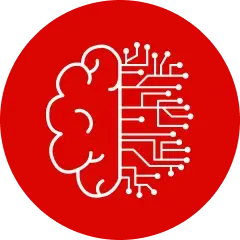
AI Blueprint
Humanity-Forward AI:
A Blueprint for
Responsible Innovation
Artificial intelligence (AI) is moving quickly into nearly every sector of society. While the potential is extraordinary, the challenges are equally significant: questions of trust, fairness, environmental impact, and human agency remain unresolved. This blueprint responds to those challenges with a structured, multi-part approach that links technical foundations to real-world application and community benefit.

AI Blueprint Scope
This blueprint has been developed to guide the responsible evolution of AI from a cross-sector perspective. It is intended for technologists, policymakers, educators, industry leaders, and community advocates who share a commitment to ensuring that AI advances the public good.
Rather than prescribing a single standard or regulatory approach, this blueprint offers a flexible, evidence-informed framework that can be adapted to local contexts and evolving technologies. It is a living reference, meant to evolve alongside AI itself.
The content is organized into four interconnected parts:
Building the governance, legal frameworks, and infrastructure needed for trustworthy AI systems.
Ensuring AI enhances human agency and capability.
Addressing systemic risks, equity concerns, and long-term accountability.
Applying lessons to specific fields such as education and the creative industries.
AI Blueprint for the Future
The Blueprint defines a vision for the future through which technology innovation can improve the lives of people, their communities, and the planet. The structure of the Blueprint is intended to be as inclusive as possible in which different chapters focus on different topic areas, written by different authors with individual perspectives.


Participant Experiences
 Jade Newton
Jade Newton
 Johnny Aguirre
Johnny Aguirre
 Carolyn Eagen
Carolyn Eagen
 Sarah Ennis
Sarah Ennis